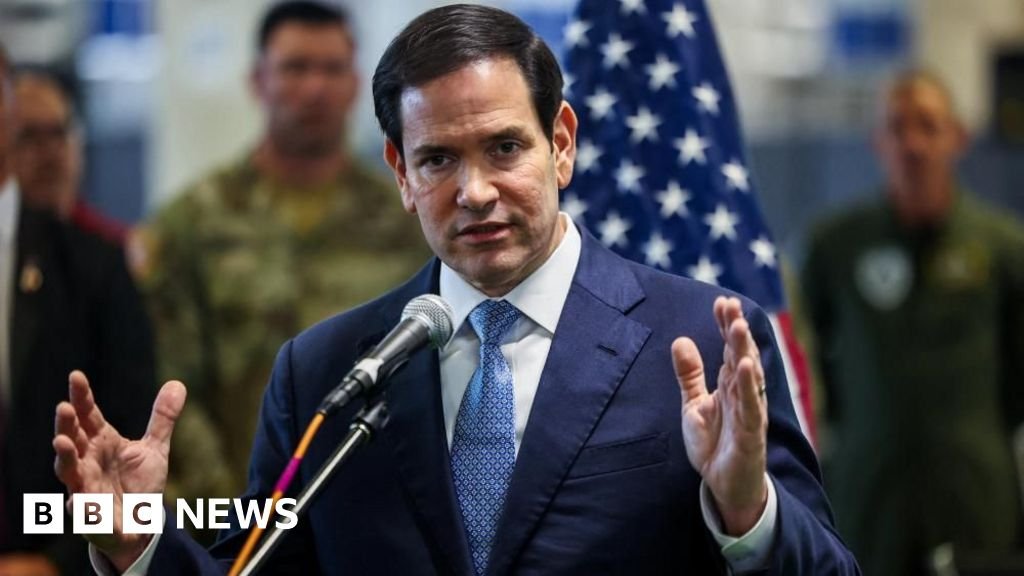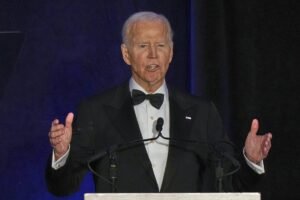
Rubio says many countries are willing to join the security forces
US Secretary of State Marco Rubio has said that “many countries” have offered to be part of an international security force for Gaza – a key part of President Donald Trump’s peace plan – but that Israel will have to be comfortable with the participants.
Speaking on a visit to Israel, Rubio said the creation of an International Stabilization Force (ISF) is under discussion and will be implemented as soon as possible.
It remained unclear, however, how such forces could be deployed without reconciliation with Hamas.
He said the Israel-Hamas ceasefire had made “historic” progress since it began two weeks ago, but warned to expect “ups and downs and twists and turns”.
“There is no plan B,” he said. “This is the best plan. This is the only plan. And we think it can succeed.”
Rubio said the situation has to be created “so that we never again see what happened on October 7, so that you can live in a place (Gaza) where there are no longer elements operating that are a threat to Israel or their own people”.
The war was triggered by a Hamas-led attack on Israel on October 7, 2023, in which about 1,200 people were killed and 251 were taken hostage to Gaza.
The subsequent Israeli military campaign has killed at least 68,280 Palestinians, according to Gaza’s Hamas-run health ministry, a figure deemed reliable by the United Nations.
Rubio said Trump’s plan would disarm Hamas. “If Hamas refuses to disarm, it will be a violation of the agreement and will have to be enforced,” he said.
“Hamas cannot govern and participate in governing the future of Gaza,” he added.
Rubio’s visit capped a week in which senior US officials, including Vice President JD Vance, visited Israel. It is a sign that Washington is committed to making Trump’s plan for Gaza a success, and concerns that the actions of Israeli Prime Minister Benjamin Netanyahu’s government could collapse it. In the Israeli media, the effort has been described as “baby-sitting”, a play on the prime minister’s nickname.
In recent times, Several reports have indicated the White House’s frustration with the Israeli governmentThe military’s deadly response to last weekend’s attack on Hamas in Gaza and the Israeli parliament’s vote toward annexation of the occupied West Bank on Wednesday while Vance was visiting.
The Israeli newspaper Haaretz reported that US officials said they “will not tolerate any surprises from Israel that could jeopardize the ceasefire”, and that they expect advance notice from Israel before any strikes in Gaza. “In the study,” the report said, “the US (is) detaining some security officials from Israel”.
Publicly, Netanyahu, whose coalition relies on the support of ultra-nationalist ministers, has dismissed reports that Washington is siding with Israel and has described the country’s relationship as a partnership.
The apparent pressure from the country’s most important ally, at a time when Israel faces unprecedented isolation, threatens to derail its strategy of framing the war in Gaza as a victory at home. This narrative will be essential in the campaign for the next Lok Sabha elections scheduled for October 2026.
Both Rubio and Vance tried to strike a positive tone in their public statements — both said they were optimistic a truce would happen — while also acknowledging that negotiations on the remaining issues would be difficult and lengthy.
Those issues include the extent of Israeli withdrawal, the future governance of Gaza and the formation of the ISF, as well as the disarmament of Hamas, and he gave no indication of how those talks would proceed.
Rubio said there are “several countries” that have offered to participate in the ISF. “Obviously, as you assemble these forces, they have to be people who are comfortable with Israel or countries that are comfortable with Israel,” he added, without elaborating.
This appeared to be a reference to Turkey, which has become a key player in the negotiations, amid reports that Israel had vetoed the country’s participation.
The scope of the ISF’s mission remains unclear, as countries fear its forces could face off against Hamas fighters if no agreement is reached with the group on ISF deployment.
Seeing the peace plan “is not going to be an easy ride”, Rubio said. “There are going to be bumps in the road, but we have to work through it.”












Post Comment